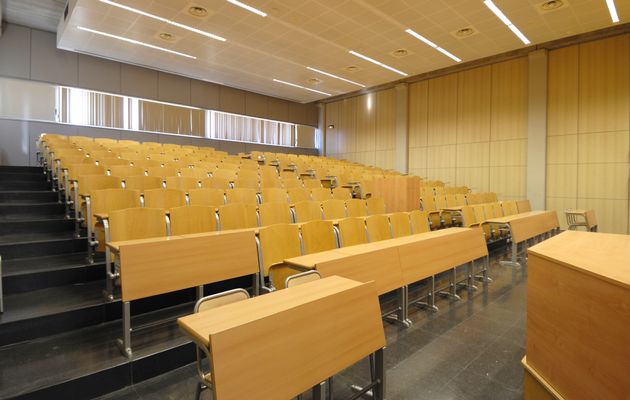Employed graduates could be forced to pay graduates’ tax to help fund free higher education. Universities are facing financial collapse as government funding is reduced, the economy continues to stagnate and they struggle to collect fees from students.
In the wake of the #FeesMustFall protests, a graduate tax is one of the recommendations made by Universities SA, which represents varsities, as part of its submission to the Fees Commission of Inquiry.
Universities SA does not know how a graduates’ tax would be implemented but believes the proposal should be considered and its implications investigated.
The CEO of Universities SA, Ahmed Bawa, said new funding strategies were necessary if South Africa were to achieve a free higher education system. He said that the proposed tax would have to be considered.
“Irrespective of when they studied, employed graduates should make some contribution to the fees of those coming after them,” said Bawa.
Universities SA, in its submission to the Fees Commission, called for a well-functioning system that met the needs of poor students.
But economist Dawie Roodt said a graduates’ tax was not the solution because this country’s small tax base was already overburdened.
“The government needs to decide what it wants taxpayers to pay for, either it’s education or health or something else, but it needs to decide because taxpayers are overtaxed,” he said.
Roodt warned against the government interfering in how universities were managed, which would compromise their independence.
“It’s all just a mess – a terrible, terrible mess. Should universities collapse, students won’t be able to graduate and get jobs and the economy will pay the price for that because, in order to survive in a developing world, we need a system that allows for education, skills and development.”
Graduate tax was proposed in 2009 in both the UK and Ireland but was not adopted.
Although he agreed with the graduate tax proposal made by Universities SA, #FeesMustFall activist and Tshwane University of Technology student MJ wa Azania said it should first be implemented among high-earning government employees, including members of parliament, ministers, premiers and MECs.
“Their salaries are way too high. It’s either their salaries are significantly reduced, or they are taxed the highest.
“We can’t have young graduates who are earning the bare minimum being further victimised when there are government officials raking in all the money,” he said.
The Fees Commission was established by President Jacob Zuma early this year after the #FeesMustFall movement brought the higher education sector to a standstill with a series of protests last year.
A zero percent increase in university fees for 2016 was instated by the government following the protests.
But this had devastating implications for universities, some of which have told the Department of Higher Education and Training that they faced collapse without a huge government cash injection next year.
Department spokesman Khaye Nkwanyana said the government’s inability to subsidise universities sufficiently has left many of them cash-strapped in recent years.
Nkwanyana said the department was waiting for recommendations by the Council on Higher Education into university fees and those of other academic institutions for the 2017 academic year.
He said that Minister of Higher Education and Training Blade Nzimande would announce the decision on 2017 fees “in a few weeks”.
The National Student Financial Aid Scheme, in an effort to recoup the more than R6-billion owed to it, has started making contact with its 400 000 defaulters.
Nkwanyana said a large portion of the scheme’s debtors worked in the public sector and held top positions.
“These are people who don’t have real financial constraints; some of them own serious assets.”
VARSITY CALLS FOR CHANGE
The University of the Free State has invited submissions from staff, students and alumni about renaming, signs and symbols on its three campuses.
It said it wants to retain the best representations of the history and identity of the institution, built up over a century.
The submissions, according to the university, may include proposals for the renaming of streets and buildings, new statues and other symbols on campus, the renewal of art collections, and the introduction of memorial gardens. The deadline for submissions and proposals, which should be made to the Statues, Signs and Symbols Committee, is August 31.
Proposals for new statues, symbols and signs will be implemented from January 2017 after the approval of the university council at its final meeting this year.
The university on Friday announced that it would appeal the Bloemfontein High Court judgment, overturning it s decision to have English as its sole medium of instruction.
[Source: Times Live]





 WhatsApp us
WhatsApp us 


1 comment
This Graduate Tax idea is ridiculous! The solution rather is one that starts at the home; if you can’t feed them, don’t breed them. Hence, regardless of your religious, cultural or racial background, parents need to ensure that when they decide to have children, they too are responsible for providing for their education. They should not be looking at the government and educational institutions for free education.